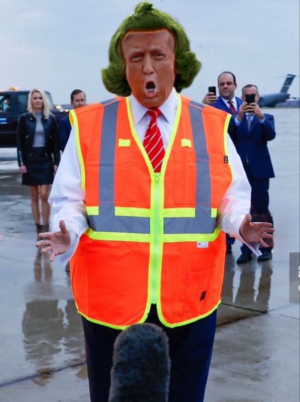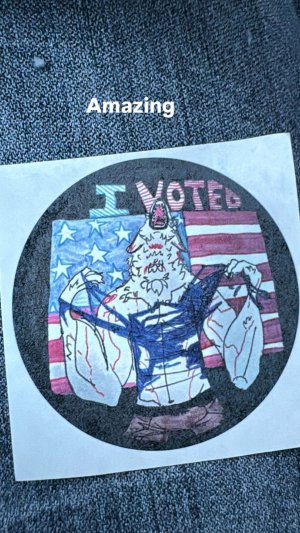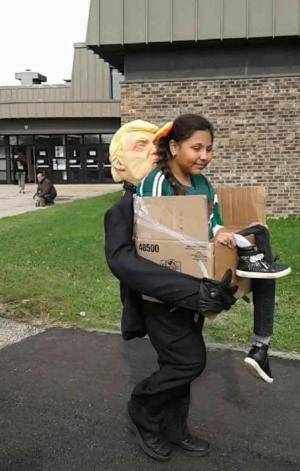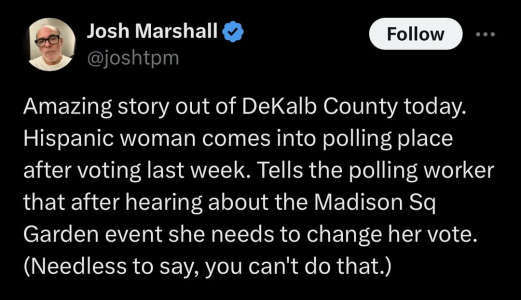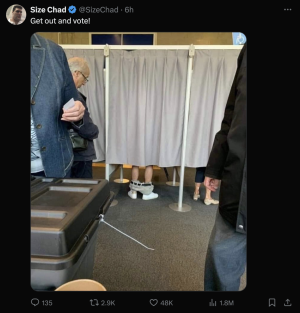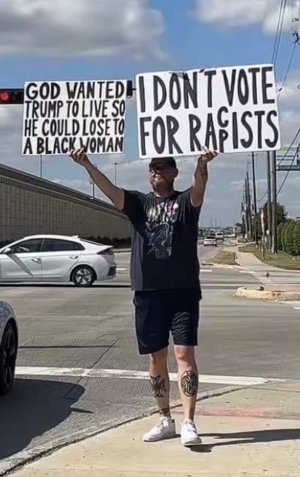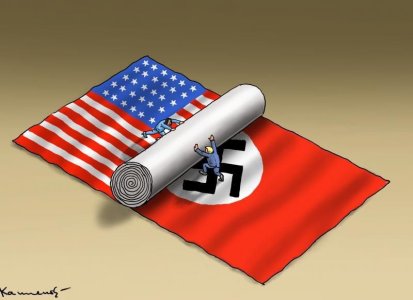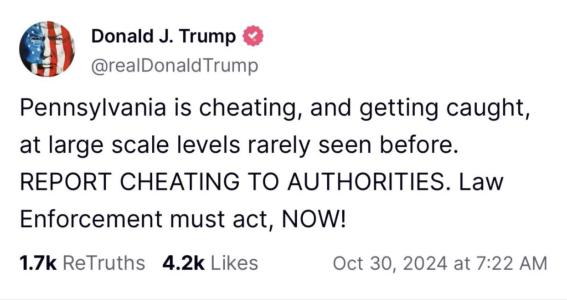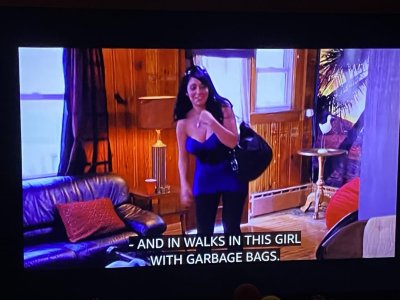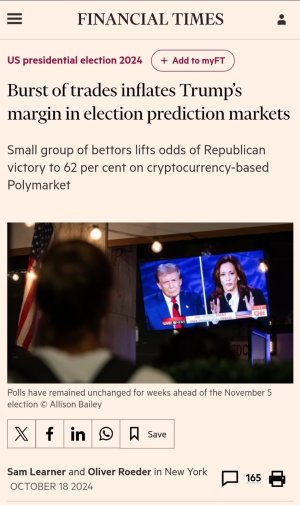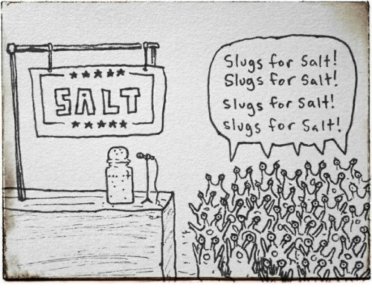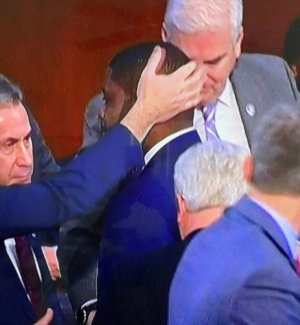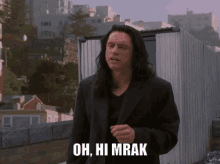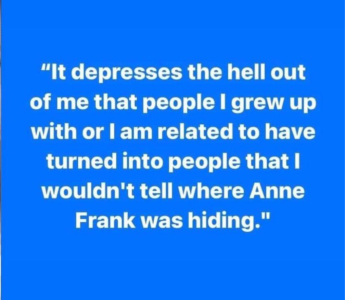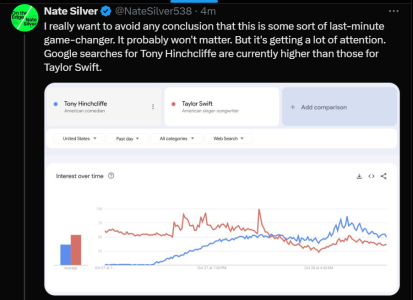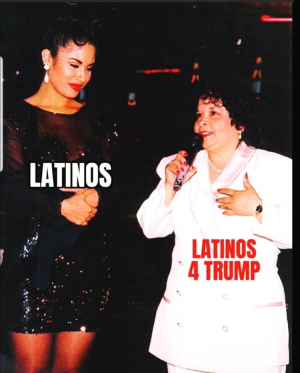An embattled White House terrorism advisor whose academic credentials have come under widespread fire telephoned one of his main critics at home Tuesday night and threatened legal action against him,
Newsweek has learned.
Sebastian Gorka, whose
views on Islam have been widely labeled extremist, called noted terrorism expert Michael S. Smith II in South Carolina and expressed dismay that Smith had been criticizing him on Twitter, according to
a recording of the call provided to
Newsweek.
“I was like a deer in the headlights,” Smith, a Republican who has advised congressional committees on the use of social media by the Islamic State militant group (ISIS) and al-Qaeda, tells
Newsweek. “I thought it was a prank. He began by threatening me with a lawsuit.”
Gorka apparently used his personal cell phone, with a northern Virginia area code, rather than making the call from his White House office or government-issued cell phone, where it would be officially logged, Smith says. The terrorism expert says he suspected Gorka “was trying to conceal the call.”
Smith says he did not begin recording
the call until after Gorka allegedly threatened to sue Smith. In an email to
Newsweek, Smith said that, “Gorka asserted my tweets about him merited examination by the White House legal counsel. In effect, he was threatening to entangle me in a legal battle for voicing my concerns on Twitter that he does not possess expertise sufficient to assist the president of the United States with formulating and guiding national security policies.”
Gorka did not respond to an email requesting comment.
Smith has been a regular contributor to think tank and TV discussions on terrorism, particularly the use of social media by al-Qaeda and the Islamic State militant group. Last year
Foreign Policy magazine included him in its list of “100 Leading Global Thinkers.”
Smith has kept up a steady stream of jabs at Gorka since he learned that the Hungarian born, British-educated terrorism specialist had been hired by President Donald Trump’s top adviser Steve Bannon. Both Bannon and Gorka came from the far-right Breitbart News, where Bannon was editor-in-chief and Gorka was national security editor. On his Twitter page, Gorka describes himself as “deputy assistant to the 45th president of America” and an “Irregular Warfare Strategist.”
His views on the “global jihadist movement,” as he calls it,
align with a small cadre of right-wing observers who depict Islamist militants and extremists as being driven principally by passages from the Koran, rather than by government repression, or sectarian, tribal, political or economic factors.
On Tuesday, Smith tweeted that Gorka “doesn't know the enemies' ideologies well enough to combat them.” In an earlier tweet directed at Trump, Smith wrote: “You are endangering the lives of Americans by hiring fake ‘terrorism experts.’”
Gorka earned his doctorate from a Hungarian university in 2008 and “a few months later landed a faculty job at the College of International Security Affairs (CISA), a new Pentagon-funded school that was still working toward accreditation,”
The Washington Post reported. According to an online biography, he is also an associate fellow at the Joint Special Operations University, at the U.S. Special Operations Command, and holds the Major General Horner Distinguished Chair of Military Theory at the
Marine Corps University Foundation, which was funded by Thomas Saunders III, a major Republican Party donor and chairman of the conservative Heritage Foundation. The program’s current director, James Howcroft, also a retired Marine colonel, told
Politico that Gorka only “periodically delivered lectures or served as a seminar leader.”
The White House advisor was clearly wounded by Smith’s taunts. “Why is this vitriol popping out of you, every day now?” Gorka asked Smith in his call. ”I look at your Twitter feed once or twice a day and it’s half a dozen tweets about me, and I’ve never even met you.”
“Wow,” Smith responded. “Are you defeating jihad by monitoring or trolling my Twitter feed?”
Gorka expressed puzzlement several times that he was being attacked “by someone who’s never met me.”
“I’ve never met you and I’ve never attacked you,” he said to Smith, his voice rising in frustration and anger. “And your Twitter feed is an incessant berating of my professional acumen. Put yourself in my shoes, Mr. Smith. Have you done that? How would you like it if someone you’ve never met, daily and professionally attacked you?”
“Happens all the time,” Smith responded. Generally speaking, academics and journalists laboring in the field of public policy expect to be criticized for their views.
"It's not happened to me,” Gorka said, “I can tell you. Maybe you can show me some trick on how you deal with it. This is the first time ever.”
In fact, questions about Gorka’s views and credentials to speak authoritatively on Islam and terrorism were severely criticized in lengthy feature articles in
The Washington Post and
Wall Street Journal in recent days. He also received a wave of unfavorable publicity in January 2016 when he was arrested for trying to pass through a TSA checkpoint at Reagan National Airport in Washington, D.C. carrying a loaded handgun. He was
charged with a misdemeanor and sentenced to six months probation.
One of his most influential critics is Cindy Storer, a leading former CIA expert on the relationship between religious extremism and terrorism.
“He thinks the government and intelligence agencies don’t know anything about radicalization, but the government knows a lot and thinks he’s nuts,” Storer was quoted as saying in the
Post.
Smith asked Gorka why he didn’t telephone Storer, "who called you nuts in the
Washington Post,” to complain. Gorka responded that Storer’s remark wasn’t “in a Twitter feed that is being sent to people on Capitol Hill.”
Gorka’s scholarship has also come under scrutiny by Mia Bloom, an expert on “transcultural violence” at Georgia State University. “He doesn’t understand a fraction of what he pretends to know about Islam,” Bloom was quoted as saying by the
Journal. Bloom has participated in TV appearances with Gorka and at a panel last year at the Defense Intelligence Agency.
Nor has Gorka—who does not speak Arabic and has never lived in a Muslim-majority nation, according to news accounts—submitted any of his articles for review in scholarly journals, says Lawrence P. Rubin, associate editor of
Terrorism and Political Violence, the leading journal in that field.
“Gorka has not submitted anything to the journal in the last five or so years, according to my records and we have never used him as a reviewer,” Rubin tells
Newsweek. “We would not have used him as a reviewer because he is not considered a terrorism expert by the academic or policy community.”
A government expert on Middle East radical movements, who asked not to be named for fear of being fired, tells
Newsweek she was disturbed to hear Gorka suggest at a
talk he gave in Israel a few years ago that he knew of a “specific person in the [Obama White House] who was deliberately misleading the government” on terrorism issues. “He said he wouldn’t name the person on stage but would provide the particulars” privately to anyone there who wanted to know, she said. Noting the audience was full of potential adversaries, she called Gorka’s remark “‘beyond the pale.”
Several times during his call with Smith, Gorka invited him to the White House to hash out their differences “face to face, man to man,” as he put it in one exchange. They set a tentative date for March 8.
But Smith warned Gorka that “in absolute fairness to you, what you will hear is that I have very serious concerns about our national security,” and in particular Gorka’s role “as an adviser to the president of the United States.”
“If you make a devastating case, then so be it,” Gorka said.
“So be it?” Smith answered. “Then what, you’ll acknowledge you're out of your league?”
“Yeah, absolutely,” Gorka said. “Bring it on."
Late Wednesday, Gorka withdrew his invitation.
“Given your statements for the latest attack piece and continued disparaging Tweets against not only myself but the administration and the President,” Gorka wrote Smith, “consider your invitation to meet withdrawn.”












